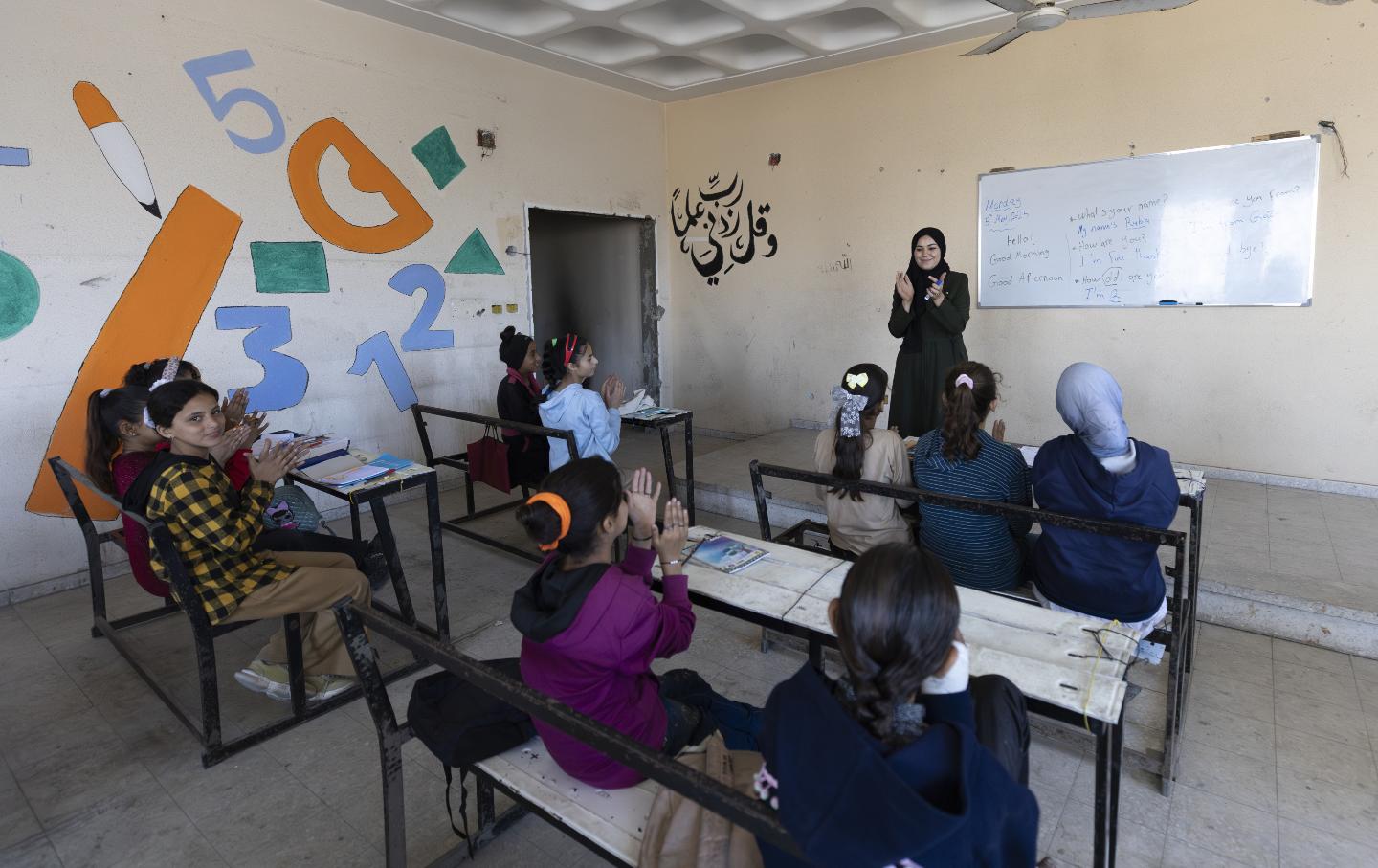September 9, 2025
“We Deserve Life”: Students Speak Out From Gaza
By Nic Wong
Hours once used to write essays or prepare for exams are now spent waiting in line for food and water. But many students still cling to their books and laptops.
Tareq AlSourani and William Liang

At dawn in southern Gaza, Hasan Barghouth wakes to the call of the muezzin. He steps out of the tent where his family lives and makes his way past rows of plastic shelters to the shade of an olive tree, where he has set up a wooden desk. The ground crawls with insects, but here he escapes the mess of daily tent life. He brings a laptop wired to a solar panel, with no battery. “Something only people in Gaza know how to do,” he says. Before the heat of the sun becomes unbearable, Hasan works through his lessons.
As of May 2025, UN agencies estimate that at least 95 percent of Gaza’s schools are incapacitated or destroyed. UN experts report that more than 5,400 students, 261 teachers, and 95 university professors have been killed, with the numbers rising daily. Higher education has been, in the words of France24, “wiped off the map” as all 12 of the city’s universities lie in ruins. More than a decade ago, the Palestinian scholar Karma Nabulsi coined the word scholasticide to describe the deliberate dismantling of the institutions, people, and processes that make education possible. Today, Gaza is the most complete manifestation of the term.
Hasan should be preparing for the Tawjihi, a high-stakes exam that determines college placement across Palestine, but the war has postponed the test indefinitely. Though versions of the Tawjihi are still administered outside the strip, high schooler Anas AlSous, like tens of thousands of other students, has not been able to take the exam. According to OCHA, more than 76,000 students have missed the test across two academic years, and UNICEF reports that nearly 40,000 students in Gaza missed it in 2024 alone. A small online session this year reached about 1,500 candidates.
Gaza’s shortages are too familiar: electricity, water, food, and, critically for students, Internet access. Many walk miles to find a signal to download lectures and join lessons, gathering in online networks of students trying to preserve a sense of high-school community. Notebooks are so hard to come by that some students solve their math problems on the backs of flyers. Many of Hasan’s peers have given up on their lessons, instead spending their days in the search for food. “They drop their pens,” he said, “to either eat or get shot.”


